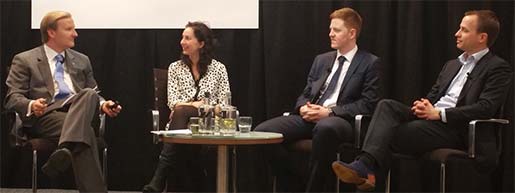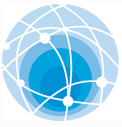Fish ranked as the largest segment of the EUR 108.4 billion frozen food market in Europe during 2014, representing 24% of sales value (EUR 26.4 billion), Cristian Stoian, head of business development for Food For Thought (FFT), told delegates attending the 19th European Cold Chain Conference in Amsterdam. The ice cream category was second at 18% (EUR 19.4 billion), followed by convenience meats, 14%, and ready meals, 12%. The top four categories thus accounted for more than two-thirds of the total market.
 Cristian Stoian, Food for Thought’s head of business development.Meanwhile, FFT has just released updated figures for 2015 that show that total sales slipped to EUR 101.6 billion last year. This was mainly attributed to lower demand in Russia, where the GDP contracted by 4%, inflation rose 13% and the ruble lost over 40% of its value. Nonetheless, the overall European frozen food market has grown by 2.7% per annum over the past five years.
Cristian Stoian, Food for Thought’s head of business development.Meanwhile, FFT has just released updated figures for 2015 that show that total sales slipped to EUR 101.6 billion last year. This was mainly attributed to lower demand in Russia, where the GDP contracted by 4%, inflation rose 13% and the ruble lost over 40% of its value. Nonetheless, the overall European frozen food market has grown by 2.7% per annum over the past five years.
Organized and hosted by the Global Cold Chain Alliance (GCCA), the Amsterdam conference welcomed over 100 professionals from the warehousing, construction and transportation branches of the cold chain industry. Representatives from 17 countries attended, including delegations from Turkey and China.
Stoian, whose Geneva, Switzerland-based company tracks and measures food and drink markets around the world and provides strategic investment advice, ranked Germany as the continent’s top market for frozen products, accounting for 18% of total sales in its 24-country review. The UK is second at 13%, followed by France and Russia (12% each), Spain (8%), Italy (7%) and Turkey (4%). These seven national markets account for three-fourths of total turnover.
He also analyzed foodservice vs. retail market shares, branded products vs. private labels, and listed the leading frozen food producers of frozen pastry, fruits, vegetables, potatoes and ice cream as of January 2016. Interested parties may obtain further details and learn more about FFT services by telephoning +41 22 731 30 92, or e-mailing Stoian at cs@fft.com.
Other Issues of Interest
Among other topics covered during the conference were: Energy Savings through Emerging Technologies; Transportation Trends and Claims; Cold Chain to Reduce Food Losses; Worker Health and Safety; and EU Government Affairs on the Cost of Border Controls.
“The ‘Next Gen’ panel of future industry leaders was a favorite among the delegates, and mine as well,” stated GCCA President and CEO Corey Rosenbusch. “I continue to hear from members around the world that talent management is a top priority for them – and facilitating discussions with young professionals currently working in the industry gives us tremendous insight into how to attract and retain their peers.”
The conference exhibition provided a platform for participating suppliers to mix and mingle with potential customers and industry decision makers, as tabletop displays adjacent to the meeting room attracted a good deal of interest. Additional networking events and functions also offered opportunities to discuss business informally.
Julie Hanson, GCCA’s new Brussels-based director for Europe, oversaw planning and execution of the conference as her initial focus with the association. Moving forward, she will concentrate on relationship-building and developing member benefits.
“My primary role is to reinforce the services tailored toward European members as an add-on to the existing GCCA global benefits portfolio, raise our brand awareness across the continent, and make sure our European network continues to grow and strengthen,” said Hanson.
Presentations from the conference are posted at the GCCA website. More details regarding the dates and location of next year’s 20th European Cold Chain Conference will be released soon.
 Corey Rosenbusch (far left), president and ceo of the Global Cold Chain Alliance, receives input from “Next Gen” panel members (left to right) Chris Menken of Leen Menken Foodservice Logistics, Ben van Leeuwen of Frigolanda Cold Logistics, and Kane Thomason of XPO Logistics.
Corey Rosenbusch (far left), president and ceo of the Global Cold Chain Alliance, receives input from “Next Gen” panel members (left to right) Chris Menken of Leen Menken Foodservice Logistics, Ben van Leeuwen of Frigolanda Cold Logistics, and Kane Thomason of XPO Logistics.





